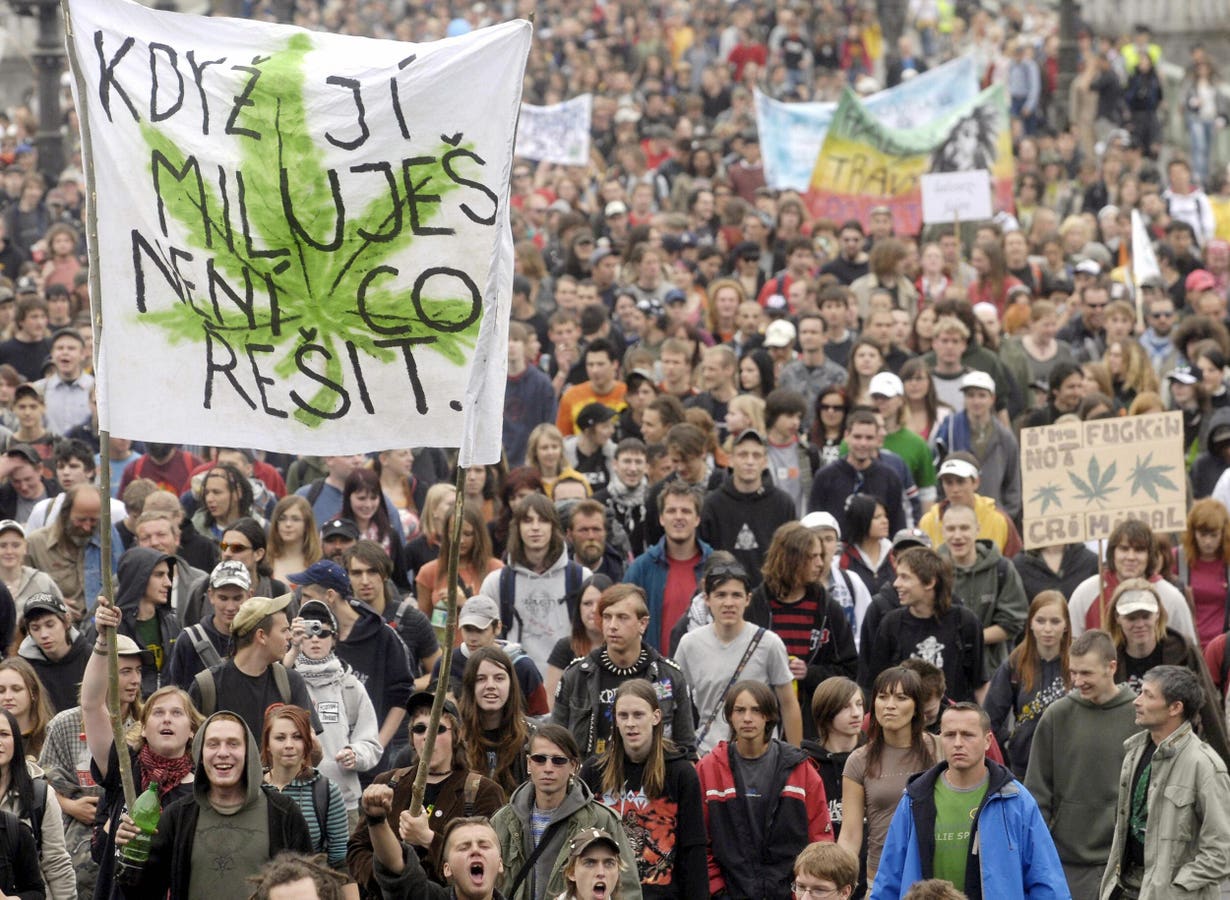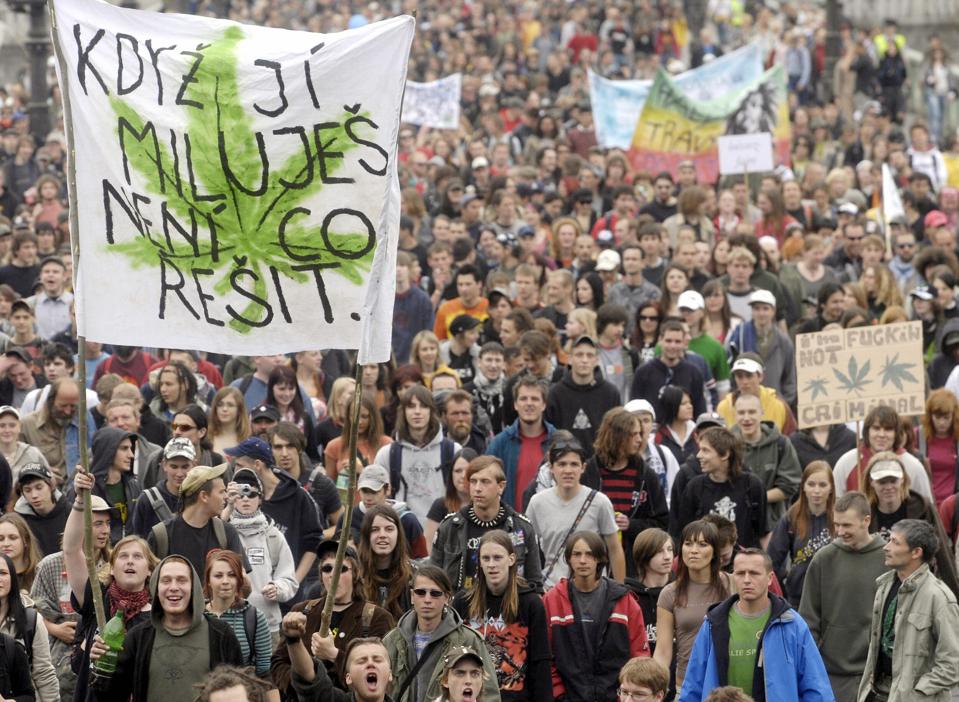Prague, CZECH REPUBLIC: Czech youths holding banners protest during during a march calling for the … More legalization of marijuana in central Prague, Czech Republic, 05 May 2007. Banner at left reads ‘Even if you wanted to, you couldn’t do anything about it.’ PHOTO AFP/ MICHAL CIZEK (Photo credit should read MICHAL CIZEK/AFP via Getty Images)
AFP via Getty Images
The President of the Czech Republic has signed a bill that decriminalizes recreational cannabis for personal use and home cultivation, but not its sale.
President Petr Pavel signed several laws on July 17, including one that amends the Criminal Code to ease restrictions on recreational cannabis, allowing possession and home cultivation.
Under the new regulations, adults over the age of 21 can legally grow up to three cannabis plants per person and possess up to 100 grams of cannabis flower, with a public possession limit of 25 grams.
Cannabis-related offenses involving amounts exceeding the legal limits will be addressed in a separate section of the Criminal Code. Possession of cannabis on behalf of another person will also no longer be considered a criminal offense.
The lower house approved the amendment in June, followed by Senate approval earlier this month. The legislation will take effect next year. However, the sale of cannabis products will remain prohibited.
The Czech Republic has also legalized the medical use of psilocybin, the psychoactive compound found in magic mushrooms, for the treatment of conditions such as depression. It is among the first European countries to do so.
The decriminalization of cannabis for personal use and home cultivation marks a step forward in the legal status of cannabis, although initial plans involved full legalization, including sales.
The decriminalization of use and home cultivation of recreational cannabis is part of a wider criminal code reform aimed at modernizing the justice system, easing prison overcrowding, and cutting public spending on minor offenses. This reform would help the legal system better focus on serious crimes while reducing unnecessary prosecutions, which should lead to lower prison numbers and a decrease in repeat offenses. Allowing adults to grow and possess cannabis for recreational use also aims to fight the black market, improve consumer safety, and promote harm reduction.
The European Quasi-Legalization Approach
The Czech Republic has had a tolerant approach to recreational cannabis, decriminalizing small amounts since 2010. The new reform, however, goes further, allowing adults to legally possess a larger amount of cannabis, providing a straightforward legal framework.
Jindřich Vobořil, former national anti-drug coordinator and current chairman of the Rational Addiction Policy think tank, told Radio Prague International that the move brings the Czech Republic closer to full legalization. However, he supports a regulated market rather than full legalization, similar to alcohol.
“I’ve been proposing for years that we should have specialized shops and licensed options for growing,” he said. “I think we’re on that path. It’s just going to take a few more years of discussion.”
With decriminalization for personal use, the Czech Republic becomes the fourth European Union member state to allow possession, use, and cultivation of cannabis, but not its sale.
Previously, Malta, Luxembourg, and Germany implemented similar reforms. Malta legalized recreational cannabis for personal use in 2021 and introduced cannabis social clubs where members can cultivate cannabis. Luxembourg followed in 2023, and Germany in 2024. The latter also allowed the establishment of cannabis social clubs.
The main reason why some EU member states have legalized recreational cannabis for personal use and cultivation, but not for sale, and instead adopted a quasi-legal approach allowing possession, cultivation, and sometimes no-profit cannabis social clubs, is that current EU drug regulations and international treaties classify cannabis as a narcotic, creating potential legal barriers.

